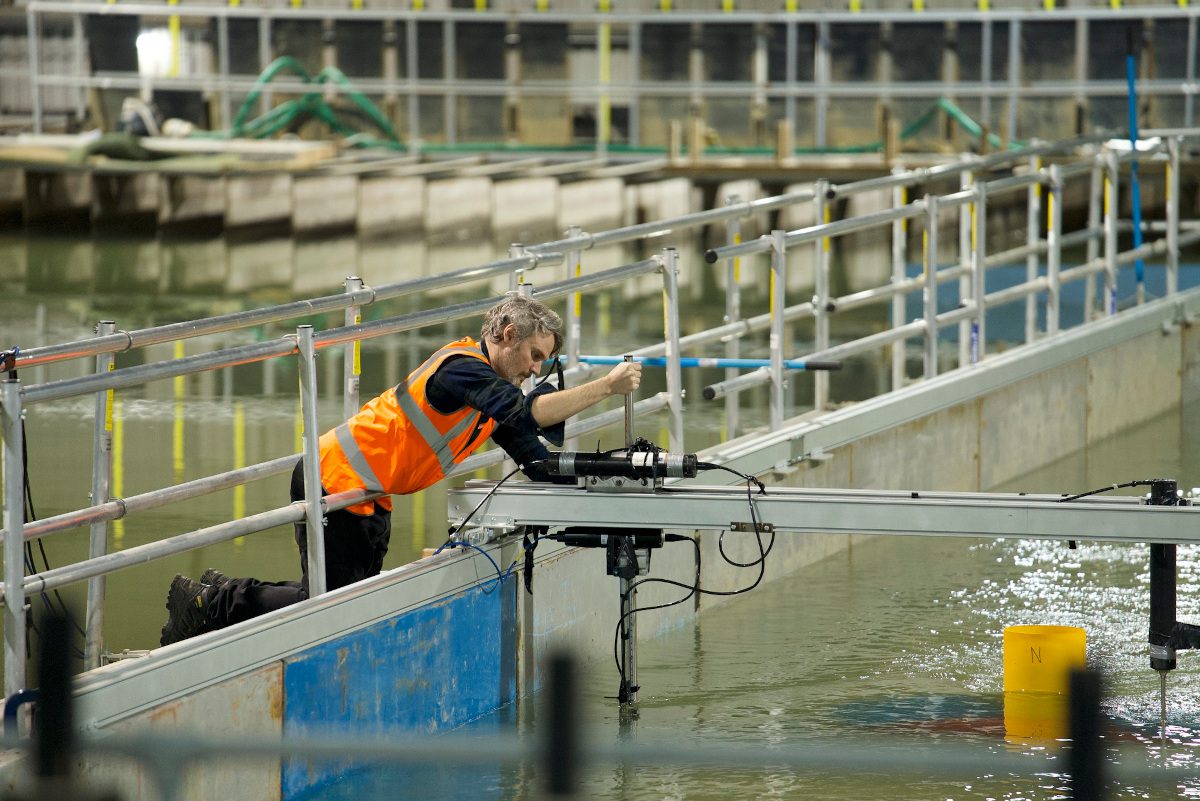
The very first tests forming part of research study intending to support overseas wind to broaden in a sustainable method have actually been finished by Bangor University and consultancy company HR Wallingford.
The tests are the initial step to comprehending the relationship in between circulation around wind turbines, and the effect on seabed, seabed animals, and the seabirds which feed upon them, states HR Wallingford. The supreme goal of the job is to take advantage of the chance from wind farm development to guarantee that seabed modifications cause biodiversity gain.
Setting up the next generation of overseas wind farms is most likely to mobilise additional sediment, possibly impacting a big location around a wind farm. The environment crisis will likewise alter the speed of circulations in our seas, as storm tracks modification and water level increase. Faster circulations might make brand-new fields of ripples and dunes, or alter the seabed from sand to gravel or vice versa. These modifications develop various environments for smaller sized marine animals, which can show appealing to them or might make them move away. Some animals on the bed, such as sand eels, are a food source for seabirds, so the response to an altering seabed environment can be felt by these leading predators.
The flume lab tests, utilizing 1:20 scale designs of the wind turbine monopiles in a substantial water tank, concentrated on examining how existing circulations alter when a monopile is set up, resulting in sediment moving and the seabed being re-sculpted. The HR Wallingford group is now utilizing the information gathered to confirm and establish mathematical designs, making it possible for researchers to evaluate the modifications to the seabed from an entire farm of wind turbines.
HR Wallingford researcher Connor McCarron discussed: “Our designs for overseas wind farm monopiles consist of those of a size presently set up around the UK, however likewise the bigger ones anticipated in the next round of wind farms. We are making use of our years of competence of assisting the overseas wind market style their turbines and search security.”
The ECOWind-ACCELERATE job will likewise make use of existing and brand-new field information. The organisations establishing the seabed in the Eastern Irish sea are sharing information and their competence, and Bangor University will utilize its research study vessels to make brand-new observations of how the seabed has actually altered in the last 10-20 years inside and outside wind farms.
Katrien Van Landeghem, Task Lead for ECOWind-ACCELERATE and a marine geologist based at the School of Ocean Sciences at Bangor University, discussed: “From our research study vessels, we will utilize a self-governing undersea lorry, developed to go near to facilities to take images and collect other ecological info, to understand precisely what that seabed appears like and how it supports the regional community. Biologists will be observing fish and the seabed environments they utilize, whilst at the same time tracking seabirds to see what they consume and where, and just how much energy that costs them. We will utilize the findings to make future forecasts of the state of the seabed and the broader community, and try to find chances for seabird preservation and seabed biodiversity gain.”
Other partners in the job– that include the University of Liverpool, the Joint Nature Preservation Committee, the Royal Society for the Defense of Birds and the Royal Netherlands Institute for Sea Research study– will bring competence on marine environments, seabed animals and seabirds to assist comprehend and design future relationships in between them inside and outside windfarms.
Mike Clare, Leader of Marine Geosystems at the National Oceanography Centre, another partner in the job, commented: “This job is actually interesting as the research study is ground-breaking, including lots of partners, and our outcomes can be utilized by choice makers and windfarm designers to choose how to handle UK waters.”
ECOWind-ACCELERATE is moneyed by the Natural surroundings Research Study Council and the Crown Estate, with assistance from the Department for Environment, Food and Rural Affairs.
The outcomes of this job will be integrated with research study by other ECOWind-ACCELERATE job partners to assess how future wind turbine bases can have a favorable effect on marine environments.